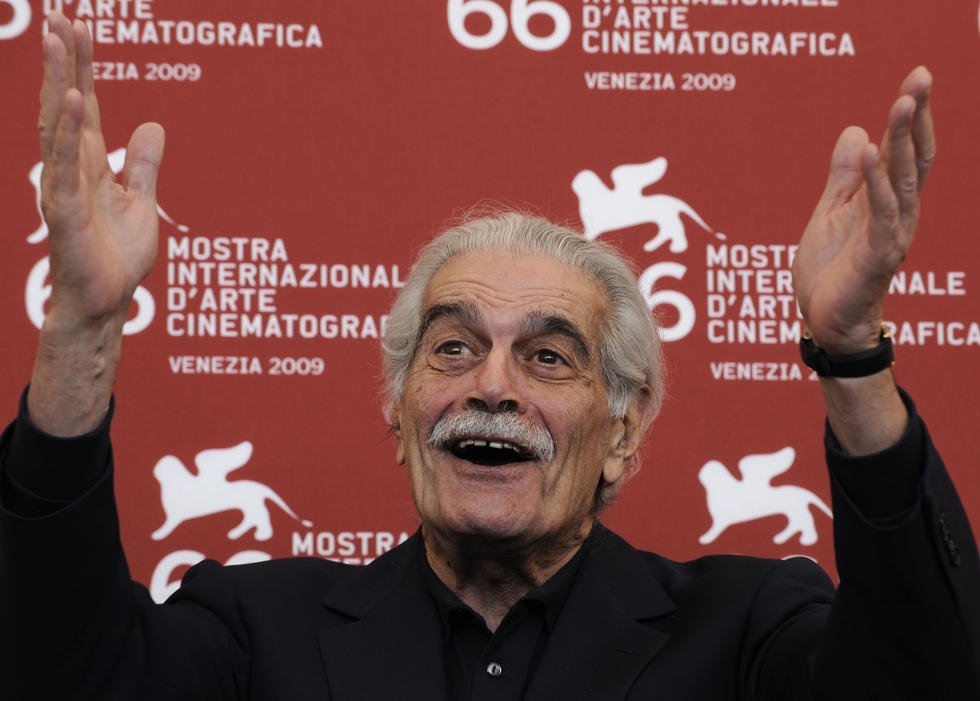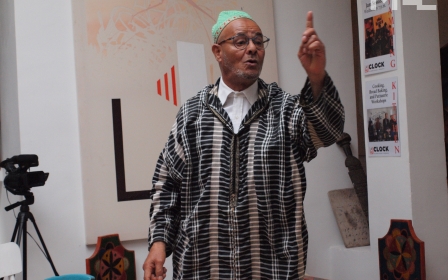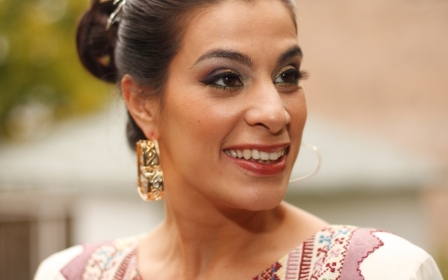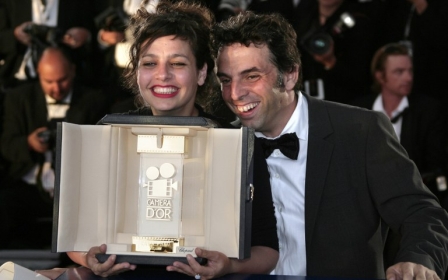Omar Sharif, the eternal 'Doctor Zhivago,' dies at 83

Egyptian-born film legend Omar Sharif, who died Friday aged 83, captivated audiences worldwide for more than half a century, but will forever be remembered as the eponymous "Doctor Zhivago".
Known for his debonair style, raffish good looks and often mischievous joie de vivre, Sharif, who also gained worldwide fame as a bridge player, had Alzheimer's disease.
He died in Cairo of a heart attack, his agent Steve Kenis said in London.
Close friend and former antiquities minister Zahi Hawwas said Sharif died in an upmarket clinic of the Egyptian capital where he had been under treatment for the past month.
"His psychological state had deteriorated, he wasn't eating or drinking," Hawwas told AFP.
Before the anticipated flow of tributes from across the globe, renowned Egyptian actress Youssra expressed her personal grief: "I feel awful, I just lost (one) of the best people in my life, I feel so lost and unhappy and helpless," she told AFP.
Sharif began acting in the 1950s and his most high-profile roles were in the 1960s when he won an Oscar nomination for Lawrence of Arabia and Golden Globes for the same film and for Doctor Zhivago.
His role in Lawrence of Arabia as Sharif Ali, an Arab chief enlisted by Peter O'Toole's TE Lawrence in Britain's fight against the Turks in World War I, propelled him to stardom, setting the stage for an even higher profile role in David Lean's subsequent release, Doctor Zhivago.
Sharif played the hero in the epic adaptation of Boris Pasternak's novel of tortured passions during the Russian Revolution, with his real-life son Tarek playing his younger self.
The actor, fluent in Arabic, English, French, Greek, Italian and Spanish, went on to star in many films and television productions, including alongside Barbra Streisand in 1968's Funny Girl.
But he never again scaled the heights of critical acclaim as in his work with Lean.
Sharif kept working over the following decades, often in television movies, and in later years became equally renowned for his prowess as a bridge player and owner of thoroughbred racehorses.
Venice best actor award
He co-wrote a syndicated bridge newspaper column in the 1970s and 80s, and wrote several books and licensed his name to the computer game "Omar SharifBridge".
"I'd rather be playing bridge than making a bad movie," he once said, before saying in 2006 that he had given up the game.
Sharif made something of a comeback in 2003 in the title role of the French film Monsieur Ibrahim, playing an elderly Muslim shopkeeper.
The performance won him a best actor award at the Venice Film Festival and the best actor Cesar, France's equivalent of an Oscar.
In his later years he continued making movies and television films, including I Forgot to Tell You in 2009 and Rock the Casbah in 2013.
Born Michel Demitri Shalhoub on April 10, 1932 in the Mediterranean city of Alexandria - at the time a cosmopolitan hub - to parents of Syrian and Lebanese extraction, he was raised a Catholic.
He studied at Alexandria's Victoria College before gaining a degree in mathematics and physics from Cairo University.
He joined his father's lumber business, but the acting bug had taken hold while he was studying, and in 1954 he made his silver screen debut in the Egyptian film Siraa Fil-Wadi ("The Blazing Sun") by Youssef Chahine.
The movie's romantic intrigue was echoed off screen as he married the leading lady, renowned Egyptian actress Faten Hamama, converting to Islam and renaming himself Omar Sharif.
They had one son, Tarek, before divorcing in 1974. Hamama died in January 2015.
Playboy lifestyle
Sharif never remarried, but had another son, Robin, from a brief relationship with Italian journalist Lula De Luca.
He lived between France, Italy and the United States, before settling again in Egypt.
His playboy lifestyle of fine hotels, casinos and restaurants from California to the Cote d'Azur was not without its brushes with controversy.
In August 2003, he received a one-month sentence and a fine for headbutting a policeman outside a Paris casino. He was unrepentant, saying: "It made me the hero of the whole of France. To head-butt a cop is the dream of every Frenchman."
He was also ordered to take an anger management course by a California court in 2005, after punching a parking attendant in a dispute over whether he could pay in euros rather than dollars.
Sharif had a triple heart bypass in 1992 and suffered a mild heart attack in 1994, according to the IMDb movie database website. The 100-cigarettes-a-day smoker quit after the operation.
In January 2011, during Egypt's popular uprising Sharif called for then president Hosni Mubarak to stand down, while at the same time expressing doubts about the Muslim Brotherhood.
New MEE newsletter: Jerusalem Dispatch
Sign up to get the latest insights and analysis on Israel-Palestine, alongside Turkey Unpacked and other MEE newsletters
Middle East Eye delivers independent and unrivalled coverage and analysis of the Middle East, North Africa and beyond. To learn more about republishing this content and the associated fees, please fill out this form. More about MEE can be found here.




